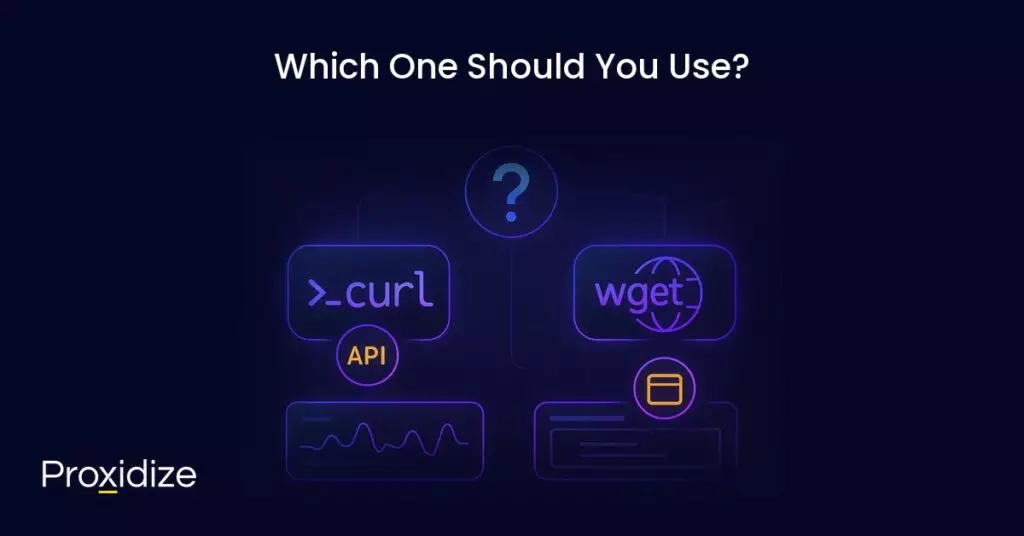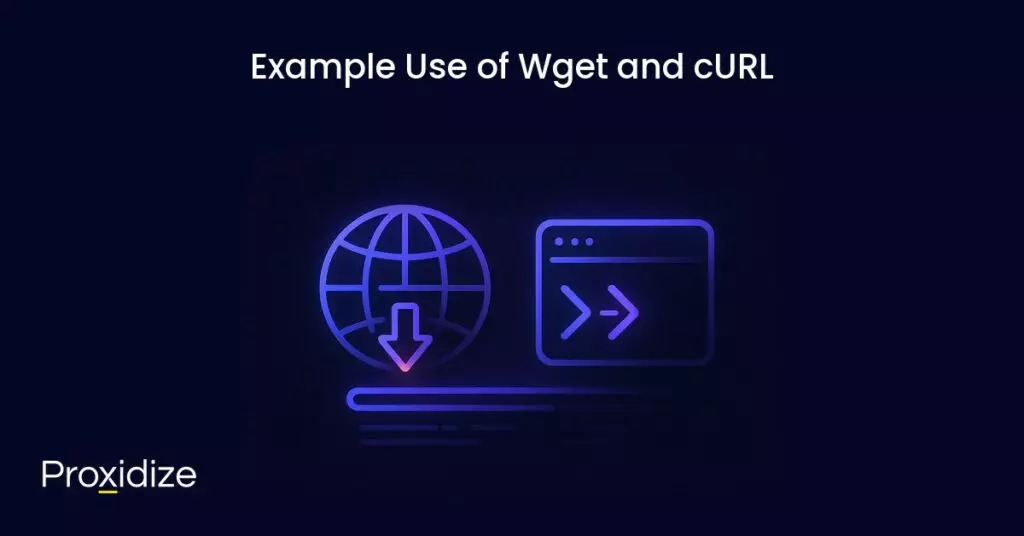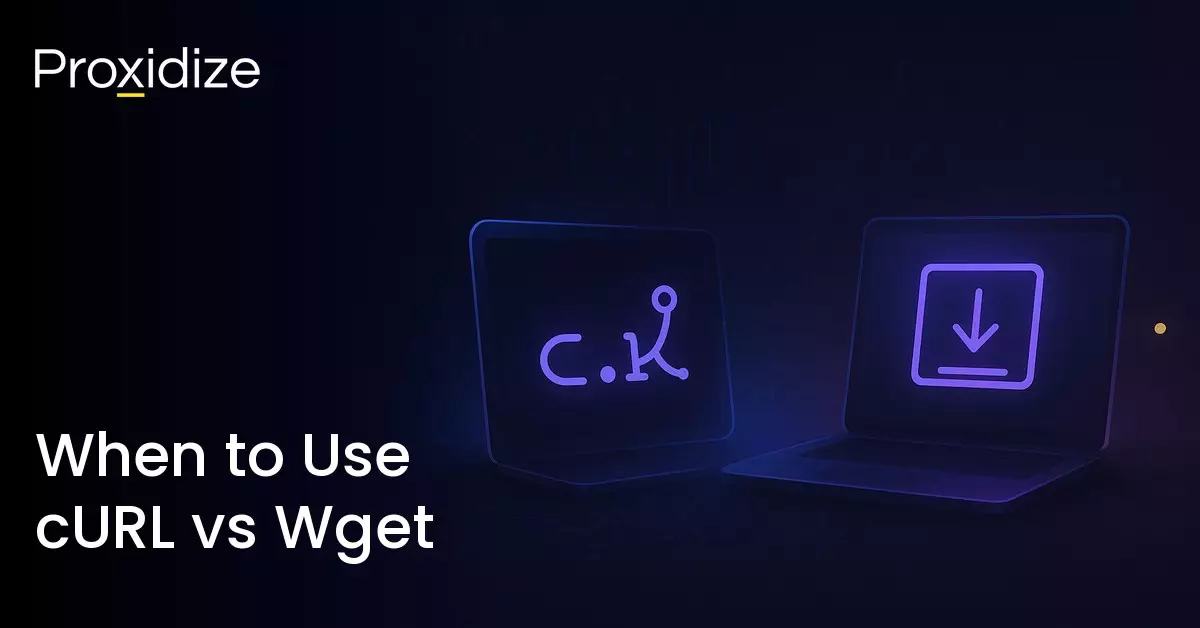As builders or developers we do data transfers from the command line and when it comes down to it, two tools dominate the conversation. cURL and Wget are both great tools and widely used, but people often mix them together. However, each one of them serves different purposes and works best in different scenarios.
If your big question is when to use cURL or Wget for downloading files, testing APIs, or automation scripts, then you’re not alone. In this article, we’ll break down the key differences between cURL and Wget, their strengths, weaknesses, and each one’s best use cases.

What is cURL?
cURL, short for Client URL, is a command-line tool used to send and receive data from servers using a wide variety of protocols. It’s built on a library called libcurl and supports protocols like HTTP, HTTPS, FTP, SMTP, LDAP, and more. If you want to know more, you can read our detailed breakdown of what cURL is.

What is Wget?
Wget is a free command-line utility used for downloading files from the web. Different from cURL which focuses on data transfer across different protocols, Wget is the go to for retrieving content from HTTP, HTTPS, and FTP servers.
One of the biggest strengths of Wget’s is its ability to download entire websites for offline use. It supports recursive downloading, meaning it can allow links and fetch all related files, making it popular for website mirroring.
Common use cases for Wget:
- Downloading single files or bulk files from the internet
- Mirroring websites for offline browsing
- Automated batch downloads using scripts
- Handling unstable network connections with resume capability
Wget is your go to if you want a reliable and simple way to download files without worrying about APIs or sending data to servers.
Comparison Table: cURL vs Wget
| Features | cURL | Wget |
|---|---|---|
| Primary Purpose | Data transfer using URLs | Download files and websites recursively |
| Supported Protocols | HTTP, HTTPS, FTP, SFTP, SCP, LDAP, ETC. | HTTP, HTTPS, FTP |
| Output | Displays response ( can be saved to a file) | Saves content directly to file |
| Recursive Download | Not Supported | Supported |
| Resume Downloads | Supported | Supported |
| Ease of Use | Flexible but more complex | Simple for downloading files |
| Typical Use Cases | API requests, testing endpoints, scripts | Website mirroring, bulk file downloads |
| Cross-platform | Yes | Yes |

cURL vs Wget: Which One Should You Use?
Choose cURL if:
- You need to test APIs or send custom HTTP requests (GET, POST, PUT, DELETE).
- You work with multiple protocols like FTP, SFTP, OR SCP.
- You need precise control over headers, authentication, and request options.
Choose Wget if:
- You want to download entire websites or directories recursively.
- You need to resume large files easily.
- Your goal is simple, bulk file downloading without complex configuration.
That being said, use cURL for testing APIs and complex network tasks, and use Wget for mirroring websites.

How to Install cURL and Wget
Both tools come pre-installed on mac and Linux systems, but here’s how to install them if needed:
On Linux (Debian/Ubuntu)
sudo apt update
sudo apt install curl wgetOn macOS (using HomeBrew)
brew install curl wget On Windows
- cURL: Included by default in Windows 10 and later.
- Wget: Install via GNU Wget for Windows or use:
choco install wgetWe are using chocolatey as our package manager for Windows.

Example Use of Wget and cURL
cURL Example
Download a file:
curl -O https://example.com/file.zipSend a GET request:
curl https://api.example.com/dataWget Example
Download a file:
wget https://example.com/file.zipDownload an entire website recursively:
wget -r https://example.comConclusion
Both cURL and Wget are great tools developers use for downloading files and data transfers. As we’ve discussed, each one of them has its own use case: Use cURL for flexible HTTP requests and API testing, and use Wget when downloading files or an entire website.
Key takeaways:
- Use cURL for flexible HTTP requests and API testing.
- Use Wget for downloading files or an entire website.
- Both tools support multiple protocols, but cURL is more flexible while Wget is better for recursive downloads.
- Both are cross-platform and available on most operating systems.
We hope we’ve made clear the differences between the two and that you are not one of the many people who get the two mixed up.




